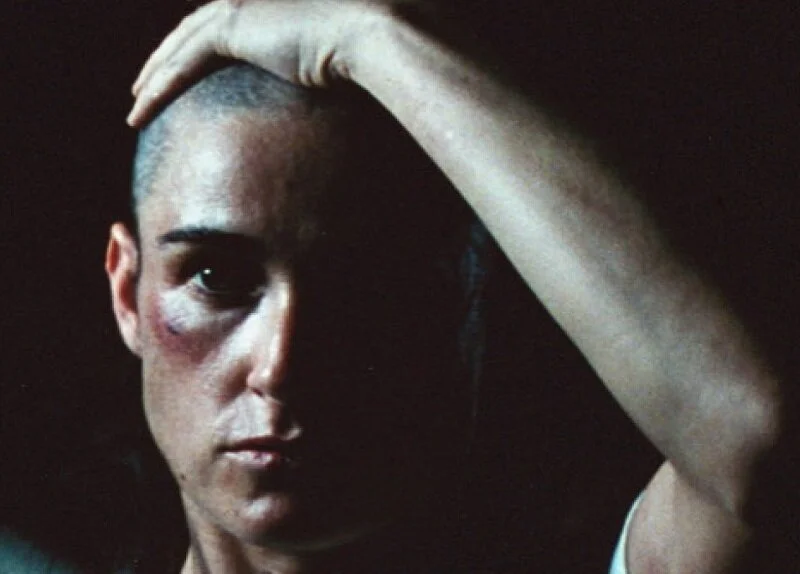Was G.I. Jane Actually Good?
G.I. Jane. Image courtesy of Buena Vista Pictures.
I was kind of surprised to find out that Ridley Scott’s 1997 film G.I. Jane is considered somewhat disappointing. It has a 51% on Rotten Tomatoes and Demi Moore apparently got the Razzie for Worst Actress. Maybe by memories of this film are clouded by my youthful recollection, but such negativity seems undeserved. G.I. Jane, as far as my 14 year old self remembers, was a solid piece of joingoistic rah-rah filmmaking with a strong female lead.
After Thelma & Louise, Scott put out a pair of ocean-themed clunkers in the mid-1990s (1492 and White Squall which I actually remember watching with my brother on the old VHS tape player and having my teenage sensibilities moved by the big broad emotions the film trafficked in, but adult viewers were apparently not moved in the same way) before finishing out the decade with another proto-feminist fable about an ass kicking woman who bucks convention by becoming a Navy SEAL. It even has the Future King of Middle Earth in it, quoting poetry like an emo kid.
The narrative is pretty straightforward: a Congresswoman proposes that if a female candidate can make it through the notoriously challenging Navy SEAL training, then the Navy will start opening more positions up to female service members. This woman ends up being Demi Moore, and she ends up making it through training and then participating in an actual military operation in Libya where she demonstrate how she deserves to be in combat in suitably dramatic fashion.
As I remember, the acting, action and even the script are all solid (the screenplay even dips into the nitty gritty with a very inside baseball subplot about congressional districts and military bases which would fit right in on C-SPAN). The training montages showcasing the next-level SEAL training are probably the most memorable. Ultimately, the US military comes off looking like a finely tuned war machine in the film which I don’t have any problem with. You have to remember, this was 1997, the peak of the United States’ unipolar moment and this film reflects the social and political currents of the time.
The Clinton Era was a time when our conservative White Anglo Protestant values were starting to loosen up, a smidge. Back then progressive victories were small and incomplete things, like the Don’t Ask, Don’t Tell policy - anyone of any sexual orientation could join the US Armed Forces, as long as they didn’t tell anyone about it. Those were the kind of compromises that were seen as progress in the 1990s. Similarly, in 1994 Congress authorized women to serve in any position in the military for which they were qualified, except in a direct combat role.
So that is the cultural, political and social context that provides some important background for G.I. Jane - that is to say, it was somewhat progressive for its time. And I think it’s actually pretty ironic that a lot of critics then came out and bashed Demi Moore in what I think is a perfectly fine acting performance. Maybe in reality those people just weren’t ready to see a woman serve in a combat role in the military, even in a cinematic fantasy. And maybe they were the same people who piled on Thelma & Louise earlier in the decade because they weren’t ready to see a woman shoot a rapist in the parking lot of a country western bar.





